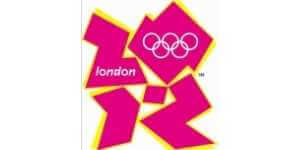Hansen’s Comeback Takes on Fairytale Qualities
Full wall-to-wall coverage, including photo galleries, athlete interviews, recaps and columns are available at the Event Landing Page
By John Lohn
LONDON, July 30. ONE day, they’ll sit down with their child and regale him/her with stories of the 2012 Olympic Games in London. They’ll explain how dad, in his third Olympiad, persevered like never before. They’ll show the youngster video of a fairytale comeback, a return to the sport punctuated by a bronze medal.
About 12 hours have elapsed since the conclusion of the 100 breaststroke. The fact that the race was won in a world-record time of 58.46 by South African Cameron van der Burgh is still hard to believe. That’s just ridiculous speed. Yet, van der Burgh’s triumph was accompanied by another great storyline, the bronze-medal showing of Brendan Hansen.
The Olympic medal hierarchy is not difficult to understand. Gold is better than silver. Silver is better than bronze. Bronze is better than nothing at all. Except in Hansen’s case, the bronze medal he’ll take home to Texas has the greatest look of any medal the 30-year-old has ever won. You see, sometimes bronze is as good as gold.
In the two years leading up to these Olympic Games, so much was made of the comeback attempts which dotted the sport. Many tried to rekindle their past glory, but in most cases fell short. Ian Thorpe bombed out at the Australian Trials. Dara Torres couldn’t deny age one more time. Ed Moses and Janet Evans, longshots in their comeback bids, bowed out at the United States Trials.
Hansen, though, is another story. After finishing fourth in the 100 breast at the Beijing Games, where he earned gold in the 400 medley relay, Hansen walked away from the sport. He was burned out, and hated what he was doing. He was done — forever. There was a feeling of relief, too. No longer bound to the water and the monotony of following that black line at the bottom of the pool on a daily basis, Hansen could set his own schedule. Before, swimming made the rules.
There was additional time to hunt and fish, which are favorite pastimes. There was time to get married to his longtime girlfriend, Martha. Really, the only tie to his athletic career was the swimming portion of triathlons, which Hansen took up to remain in shape.
Eventually, and largely due to his break, Hansen started to get the itch. Should I give it another try? It’s a question he didn’t just ask himself. Following discussions with his wife, whom he married in 2010, Hansen started on the comeback trail in January 2011. It was Martha Hansen who helped in the decision to return, explaining that she didn’t want regret to arise when her husband was in his 40s. She didn’t want to be sitting around the dinner table and hear what-if remorse.
“When we started to talk about (a comeback), Brendan asked for my opinion,” Martha Hansen said a couple of months ago. “We both agreed he had unfinished business in the pool, and that he was in a great position to try for a comeback. When I asked him if he would regret not trying for the Olympics again, the answer came out of his mouth way too quickly and easily for the answer not be blatantly obvious.”
As exceptional as his career was before retirement, Hansen was guaranteed nothing upon his return. He, too, could have fallen into category of Thorpe. However, Hansen’s return went another direction. He first won a couple of national titles, producing times which placed him back on the international map. A year later, he qualified for his third Olympic Games, thanks to the fourth-fastest time in the world at the Olympic Trials in Omaha.
Even if his comeback didn’t yield a medal in London, it would have been considered successful, especially compared to the other comeback attempts. Now, it can go down as a fairytale. As Hansen moved through the interview gauntlet after his bronze-medal showing, he couldn’t wipe the smile from his face. There was almost a sense of disbelief. Even as he stood on the podium to receive his medal, he had a slight look of shock.
Truthfully, there was reason for that deer-in-the-headlights look. Hansen barely squeaked into the championship final, qualifying as the eighth seed after placing sixth in his semifinal. Few thought he had a chance to medal, and it didn’t look good when he turned in sixth place at the 50-meter mark. But over the final lap, Hansen continually surged to earn a place on the podium, and the most appreciated piece of hardware in his career.
More, he also fended off longtime rival Kosuke Kitajima, the Japanese star whose pursuit of a third consecutive Olympic title in the event fell short with a fifth-place finish. But this wasn’t about a head-to-head duel with Kitajima. It was about staying focused and confident, and enjoying the ride.
“I never counted myself out,” Hansen said. “I knew I was going to be on the outside and I could do my own thing. I think a lot of people counted me out after the semifinals. That was a gutsy swim. To miss in Beijing and then get on the podium here is a great feeling. This is the shiniest bronze medal ever. It’s definitely the hardest one I ever won. When I came back, I wasn’t thinking about winning a medal. I outperformed myself.”
As Martha Hansen watched her husband excel, she had company. She is carrying the couple’s first child, due to be born in January. One day, that baby will be old enough to hear and smile at the stories of dad’s perseverance.
Before the Olympic Games, Brendan Hansen’s comeback was impressive. It can now be considered exquisite.
Follow John Lohn on Twitter: @JohnLohn




